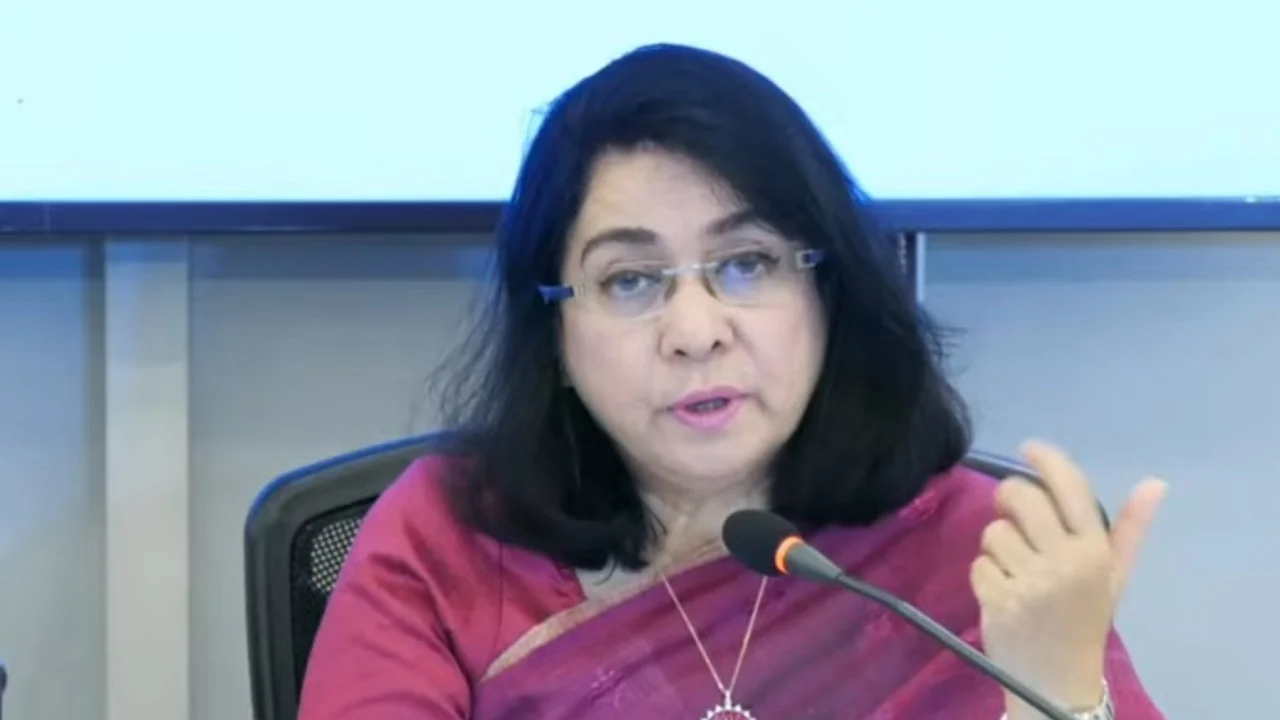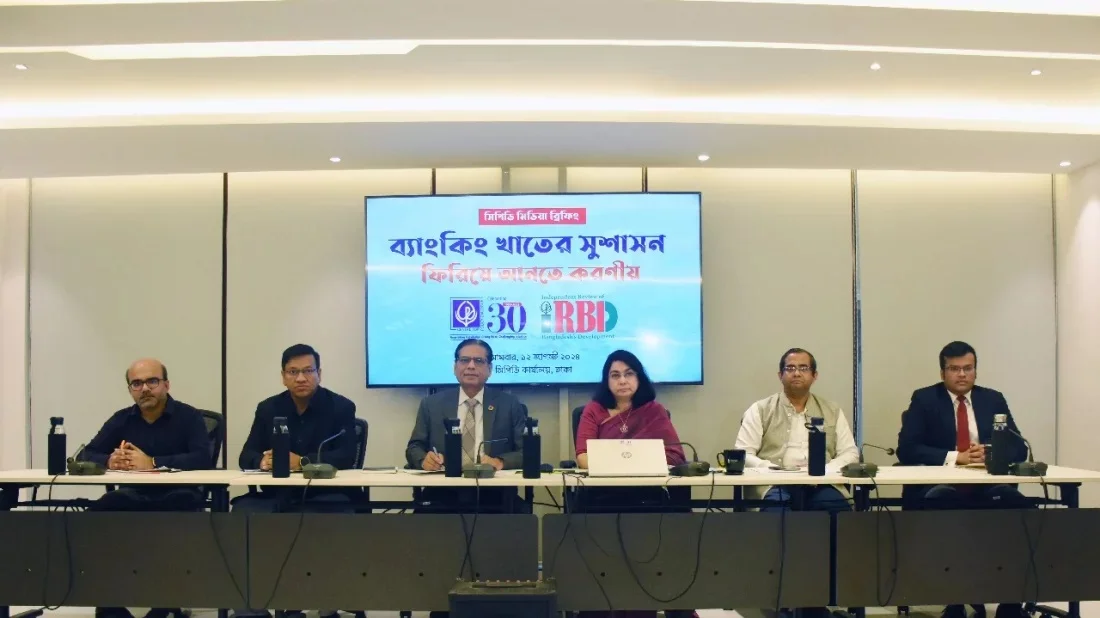92,261C embezzlement: CPD says shut down clinically-dead banks
Share on:

Several banks are “clinically-dead”, but have been kept alive through bailouts, and the Centre for Policy Dialogue (CPD) thinks those on the verge of collapse should be allowed to shut down.
An exit policy for troubled banks should be formulated for protecting depositors’ money in those banks before they are closed.
According to CPD, about Tk92,261 crore was embezzled in 24 major banking scams between 2008 and 2023.
The embezzled amount is equivalent to 12% of Bangladesh's national budget of FY24, or 2% of the country's gross domestic product for FY23.
In a media briefing on Monday titled “Bringing Discipline in the Banking Sector: What Should be Done Immediately”, the CPD also said that to stop duality in regulation over banks, the Finance Ministry's Financial Institutions Division (FID) should be closed immediately, and all current and former officials of FID should be investigated for any wrongdoing.
Regarding the appointment of Bangladesh Bank governor and deputy governors, the think tank recommended that they should not be members of the legislature or from the public service sector.
The CPD said this was the rule stated in the Bangladesh Bank (Amendment) Act, 2003, which mentioned that the governor and/or any new deputy governor should not be any current or former government official.
The think tank again strongly recommended a Banking Commission.
They said that a goal-specific, time-bound, transparent, unbiased, inclusive and independent Banking Commission should be formed to bring transparency to the prevailing situation, identify the root causes of the manifest problems, and suggest credible measures for improving the situation sustainably.
Fahmida Khatun, executive director of the CPD in the keynote presentation said: “The banking sector of Bangladesh is facing numerous challenges in recent years. This sector is suffering from various institutional, governance, management and operational weaknesses manifested through various performance indicators in state-owned and private commercial banks. Given the country's current state, the situation has become even more critical.”
Banking woes
CPD further stated that in 2013, the government approved licences for nine new private commercial banks to politically powerful owners, including a former mayor.
No more licences for new banks should be given on political grounds without pragmatic assessment of the need for the economy. Banks on the verge of collapse should be allowed to close down. On the other hand, the CPD also suggested that banks which are not on the verge of collapse but still performing poorly should have their management and board of directors replaced.
The duality of FID
Regarding the closure of FID, CPD’s point was that its mandate was directly contradictory to Bangladesh Bank Order, 1972 (P.O. No. 127 1972) since it allowed FID to exercise its authority to oversee Bangladesh Bank’s governance.
CPD also added that in the last 15 years, governors of Bangladesh Bank helped the vested interest groups either by ignoring the existing rules or changing the laws to favour them.
To stop these collaborations and in line with Bangladesh Bank (Amendment) Act, 2003, the new governor and any new deputy governors should not be any current or former government official.
The presentation paper also stated: “In 2017, a single corporation gained control over 7 private commercial banks in Bangladesh. Several previously good banks have experienced an unfortunate decline in their performance after hostile takeovers by crony capitalists."
Therefore, it was recommended that a single individual or group should not be allowed to obtain majority ownership of more than one commercial bank.
Regarding illicit financial outflows and previously laundered money inflow, CPD said that the Bangladesh Financial Intelligence Unit (BFIU) should be strengthened to prevent illicit financial outflows and stop previously laundered money from entering the country to destabilize the new interim government or create anarchy.

From 2007 to 2014, illicit financial outflows from Bangladesh ranged between $47 billion and $67 billion, according to the Global Financial Integrity (GFI) Report 2005-2014.
Between 2014 and 2016, an amount of about Tk236 crore was laundered using AB Bank’s offshore banking service.
S Alam Group took out about Tk30,000 crore in loan from Islami Bank Bangladesh Ltd in 2022.
Between 2009 and 2013. an amount of Tk4,500 crore was embezzled from BASIC Bank through fake companies and dubious accounts.
Fahmida Khatun also said: “Integrity and availability of timely data should be ensured. Reports and data on individual banks and financial institutions should be published regularly and made publicly available. All commercial banks should be obliged to make their mandatory disclosures under BASEL III in a timely fashion.”
At the briefing, CPD Distinguished Fellow Prof Mustafizur Rahman, Research Director Khondaker Golam Moazzem, Senior Research Fellow Towfiqul Islam Khan were also present, among others.

